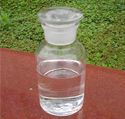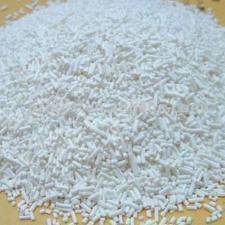Products
 News
NewsThe Influence of Sodium Benzoate to Health
Benzoic acid and benzoate occur naturally in blueberries, cranberries, prunes, cinnamon and cloves. A small amount of sodium benzoate is non-toxic to humans, it can be quickly absorbed in the body, mainly combined with glycine to form hippuric acid excreted; there are a small part of glucuronidation of 1 - benzoyl glucuronic acid the discharge. In 10-14 hours sodium benzoate can all discharge from the body, so a small amount of sodium benzoate there would be no savings. But the cat is sensitive on benzoic acid, prone to excitement, nervousness, loss of hearing and balance and other symptoms, so in the manufacture of pet food should pay attention to.
The FDA regulation of sodium benzoate content in food should not exceed 0.1% (by weight). International Chemical Safety Agency study found that a daily intake of 647-835mg per kg of body weight of sodium benzoate does not have a negative impact on health.
Benzoates preservative may be reacted with the vitamin C form carcinogenic benzene. As countries for benzene content in beverages have different standards , different levels of benzene in beverages is not the same , but the decomposition reaction with light, heating and storage time and many other factors have a great relationship, so current benzoate whether the excessive benzene produced inconclusive . This makes the public benzoate toxicity questioned continued. So Coca-Cola Company announced that its products will be gradually banned the use of sodium benzoate, and replaced with a more natural preservative.
In addition to generating benzene, the University of Sheffield • Peter Piper in the study of sodium benzoate on living yeast cells after the effects of sodium benzoate itself will be considered on the mitochondrial DNA damage. Since mitochondria are cellular respiration place, so the damage will affect mitochondrial normal function of cells, in severe cases may lead to apoptosis, thus speeding up the body's aging, results of this study did not get the UK Food Standards Agency affirmed.
There was also research that carbonated beverages sodium benzoate together with other artificial food coloring may exacerbate ADHD children, but because of the sodium benzoate conclusions of the study are not consistent, so the results of this study did not get the UK Food Standards Agency affirmed.






